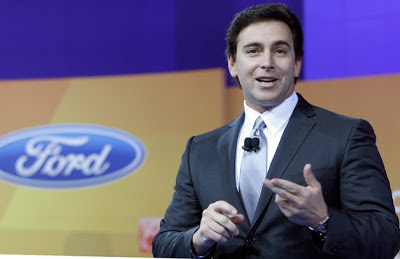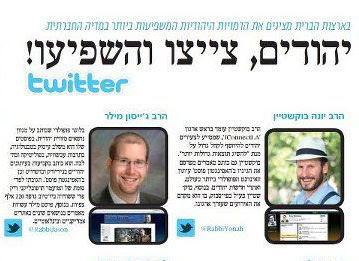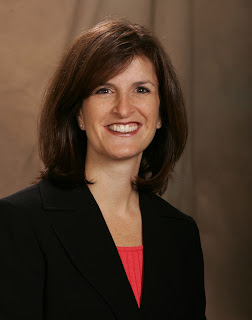The character in Rain Man was an oversimplified example of someone with autism, but many of his attributes were accurate. In the movie, Dustin Hoffman’s character has unusual skills that are exploited by his brother to count cards in Las Vegas casinos. While the brothers’ activities were unethical, the movie demonstrated that individuals with autism have unique abilities that neurotypical people do not.
 |
| 20th Century Fox Home Entertainment; MGM Home Entertainment; United Artists |
Those abilities are being put to good use by a German technology company called Auticon, which exclusively employs people with autism. The company’s owner, Dirk Mueller-Remus, founded the Auticon when his own son was diagnosed with Asperger’s. He says, “Our guys have a lot of skills in concentration and analytical/logical thinking. And we are sure the IT (information technology) industry will have benefits.”
According to Auticon’s website, the company uses the logical and analytical strengths of their consultants in software testing and quality assurance. The special abilities of their consultants with Asperger’s are advantageous in the quality control of software. Auticon lays out a vision that is both entrepreneurial as well as social. On the business side, Auticon seeks to deliver pinpoint quality in the IT sector, but it is also highly focused on being socially conscience and increasing the quality of life of those with autism through job satisfaction.
The idea that those with Asperger’s have special abilities that make them better qualified in certain jobs like those at Auticon is no shock to Mike Levine, 35, of Royal Oak. Self-diagnosed with Asperger’s in February 2003 (and later confirmed by physicians), Levine explained that “a lot of ‘Aspies’ take a real liking to the Internet and technology and they’re good at it because of their ability to really focus. If they take a job in that field, they will likely succeed because of their special aptitude.”
When Levine first heard of Auticon’s program to hire those with Asperger’s he was surprised. “My first reaction is that it’s usually the other way around. ‘Aspies’ are usually seen as a deterrent and can’t get their foot in the door at companies. The fact that Auticon specifically desires people with Asperger’s to be software testers and managers is great. And it makes sense.”
 |
| Avi Kapen |
Those with autism often have trouble fitting into the working world, but under Mueller-Remus’s leadership, the Berlin-based company has created the right working environment for people with autism and a culture that draws upon their strengths. That environment is essential says Avi Kapen, 39, of West Bloomfield, Michigan who was diagnosed with Asperger’s at 18-years-old by Dr. Ami Klin, a world renown autism and Asperger syndrome expert. Kapen works as a circulation page at the West Bloomfield Public Library and says that due to having Asperger’s, his job suits him well. “I think in some ways my Asperger’s helps me with my job. They didn’t know I have Asperger’s when they hired me, but they see how my ability to remember facts and numbers makes me successful.”
Levine agrees. About to celebrate his fifth year on the job as the office administrative assistant at Country Place Condo Association in Northville, Michigan, Levine maintains that he’s well suited for the job as a result of the combination of it being the right working environment for him and a structured, routine-focused position. That recipe has proven successful for Auticon as well and they’re not the only company looking to a workforce of autistic people in order to grow. Auticon’s Belgian partner has also shown that jobs for autistic people in the area of software testing and quality assurance lead to corporate growth and financial success.
 |
| Mike Levine |
Auticon argues that many with Asperger’s have a knack for finding patterns and flaws in gigantic calculations making them well suited for software testing. For Kapen, remembering obscure numbers and facts has been a part of his life since he was a child. He only has to hear a date – like a friend’s birthday – once and it will never escape his memory. His special talent is recalling little known sports statistics and trivia about politicians. Some might find those characteristics odd and only focus on the peculiar social skills, but increasingly people are recognizing the positives of those gifts and looking to take advantage of them.
In Germany, roughly 15 percent of people with autism are employed in the private sector due to their trouble with social interactions, a symptom of Asperger’s. The program at Auticon, however, uses job coaches to help its employees with customer relations. Participants in the study state the training allows them to feel valued as employees.
One of Auticon’s new software testers, Philip von der Linden, has found the program to be a life changing experience, saying, “That is what makes life valuable. To be needed. And if what you can do is appreciated and if what seems to be a weakness is turned into an asset.”
While those with autism have been challenged to integrate into the professional world in the past, companies like Auticon are not only giving them new opportunities, but are also demonstrating that those with special talent are integral employees. The future quality of software coming out of Berlin will be superior and we’ll all have Auticon’s autism program to thank. Hopefully American tech companies will soon follow suit.
Cross-posted to the Detroit Jewish News























